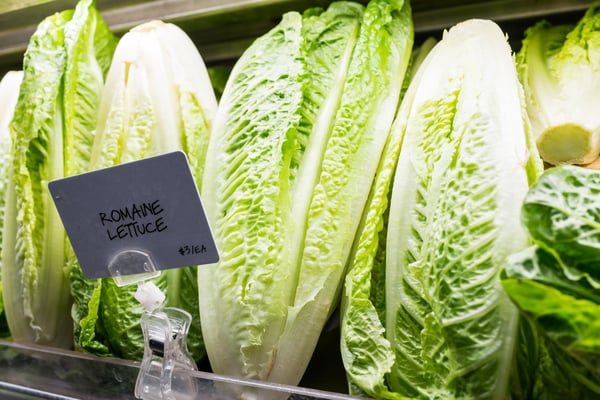
It was an all-too familiar scene. Bare shelves in supermarket produce aisles. Salads removed from menus in restaurants. When all was said and done, the 2018 romaine E. coli outbreak left 62 people sickened, leading to an unprecedented nationwide recall.
Whether it’s romaine lettuce, spinach or ground beef, food recalls are becoming almost commonplace. According to the Public Interest Research Group (PIRG), there were 703 food recalls last year, a 10% increase compared to five years ago. In the meat category, the most serious recalls—class 1—were up by 83%. Every year, foodborne illnesses kill approximately 3,000 people.
If you’re in the grocery or restaurant business, you can’t afford to ignore the inevitable. You need a plan in place to inform your customers, address the crisis head-on and protect your brand from reputational risk. Here are the steps you need to take well in advance of a food recall:
Create a Crisis Plan
The first step in preparing for a possible food recall is to create a crisis plan. When done properly, your crisis plan will have two important elements: 1. pre-written statements and other materials at the ready to allow you to move quickly when a crisis occurs; and 2. practice scenarios to prepare key stakeholders so they know what to do if and when the time comes. Every crisis plan is different but most will include:
- A list of key stakeholders with accompanying contact information (mobile and email), noting their role in the chain of command
- Description of the most likely crisis scenarios
- Timeline for responding to a media inquiry at key intervals: 15 minutes post crisis, one-to-two hours post crisis, 24-hours post crisis and after crisis is resolved
- Sample media statements for likely scenarios, leaving spaces for missing information
- Process for responding to crisis communications on the company’s social channels
Prepare your Stakeholders before a Crisis
Every retail food business must reach two audiences: franchisees/store owners or operators and the end consumer. Since each group has different priorities, you should create two sets of messages to address their individual concerns. With these in place, work closely with your immediate customers—franchisees or store owners—to walk them through all the steps of the process. Let them know that they should never respond to a media inquiry, but rather direct them to the approved corporate spokesperson or executive within the chain of command. You might recommend that they place a card at the cash register to let employees know how to respond to media requests.
Be Ready to Address Long-Term Reputational Damage
In the aftermath of a major crisis, it’s important to think about how to help your brand recover and reemerge stronger than before. You don’t want to pull the trigger on making significant changes until the immediate crisis has subsided. Otherwise, it’ll look crass and opportunistic. Think about steps you can take to ensure you’re preventing a repeat of the crisis. Is there an appropriate nonprofit you can partner with to support your efforts? Are there internal changes you can institute? There’s a reason why Tylenol is still considered the gold standard in crisis response. It’s also important to publicize your efforts and other positive news, as it will help to push negative coverage lower into the sort queue, which is key for online reputation management.
You can’t always prevent a food-related crisis, but you can prepare for one. Remember, in times of crisis, every second counts. Are you ready?
For more tips on how to take control of a crisis situation and develop a plan of action,
download our free ebook:





Let’s Connect
Ready to build, grow, manage and protect your brand? Complete the form below to discuss how we can help.